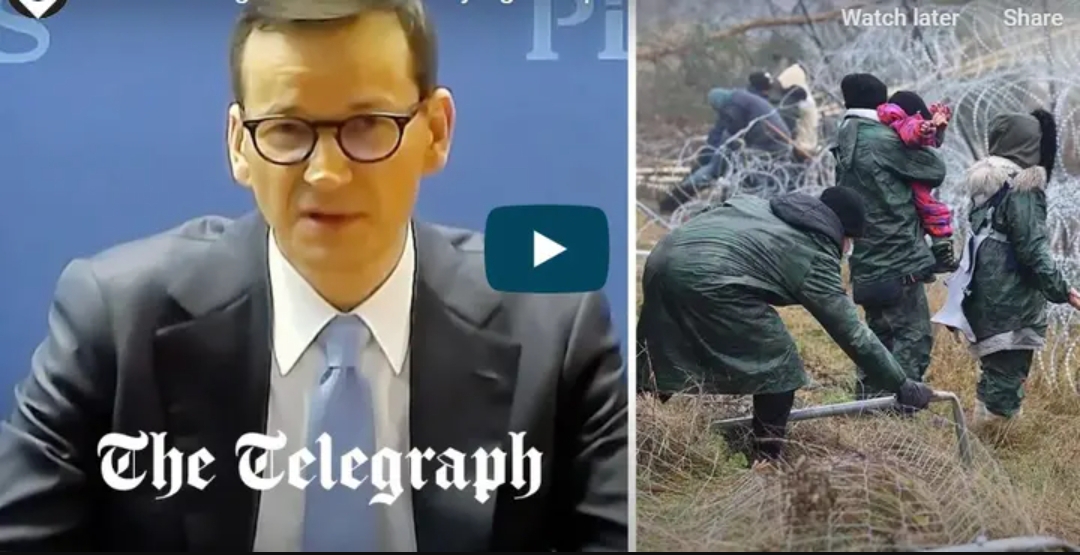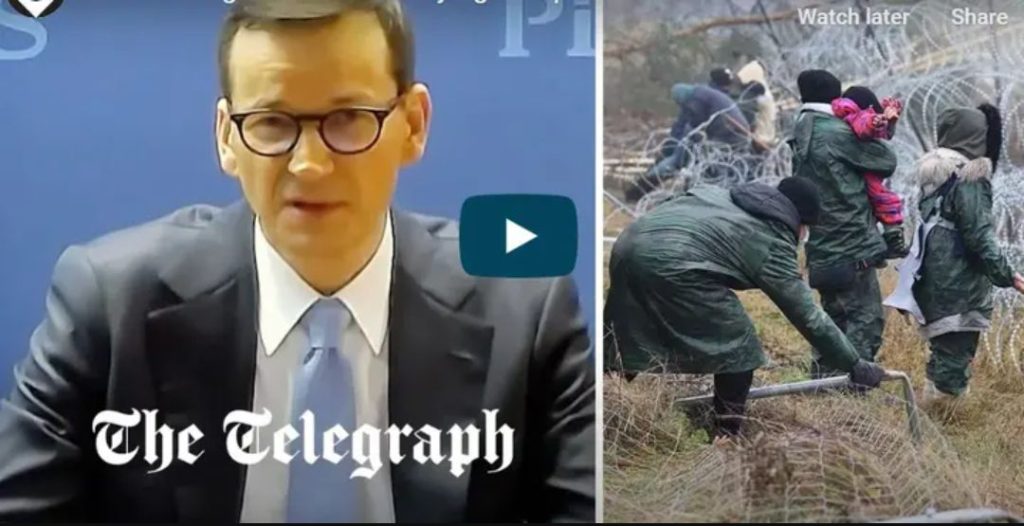
In a recent statement, former Polish Prime Minister Mateusz Morawiecki has ignited a contentious debate by expressing apprehensions about the cultural impact of Muslim migrants from Africa and the Middle East on European nations.
Morawiecki, who served as Poland’s leader until the recent elections, has voiced concerns not only about the influx of migrants but also about the European Union’s (EU) latest migration pact, challenging the principles of cultural preservation and the potential threat of illegal migration to the stability of the European Union.

According to The Telegraph, Morawiecki’s comments draw a distinctive line between his support for accepting war refugees from Ukraine, whom he perceives as culturally aligned with Poles, and his reservations about Muslim migrants seeking to settle in countries like Germany and France.
The former Prime Minister underscores the importance of preserving and nurturing Poland’s unique cultural identity while expressing admiration for various European cultures, including French, Spanish, and British.
His concerns echo sentiments shared by individuals who fear that large-scale migration, especially from culturally diverse regions, might lead to the dilution of national identities and traditions. The delicate balance between providing refuge to those in need and safeguarding cultural heritage becomes a central theme in the ongoing discourse on migration policies in Europe.
Contrary to his reservations about migrants from the Middle East and Africa, Morawiecki commends the behavior of Ukrainian refugees currently residing in Poland. The estimated one million Ukrainian refugees, fleeing conflict in their homeland, are portrayed as culturally akin to Poles, contributing positively to their adopted communities.
This acknowledgment highlights the nuanced nature of the migration debate, where the cultural proximity of refugees can influence public and political perceptions.
Morawiecki’s critique extends to the EU’s latest migration pact, agreed upon by Brussels on December 20. The pact proposes the relocation of migrants across European countries and introduces fines for nations refusing to adhere to assigned migrant quotas.
The former Prime Minister vehemently opposes any form of compulsory distribution of migrants, citing the potential threat that large-scale migration poses to the stability, security, and cultural fabric of the European Union.
His stance mirrors the broader tensions within the EU regarding migration policies. The ongoing struggle to find a unified approach to addressing the challenges posed by migration, integrating diverse communities, and respecting national sovereignty remains a critical issue. Morawiecki’s emphasis on preserving cultural identities adds a layer of complexity to the discussions surrounding the pact’s implementation.
Beyond the immediate policy disagreements, Morawiecki identifies illegal migration as a long-term threat to European civilization. He argues that accepting one or two million illegal migrants could initiate a significant wave, jeopardizing the entire European Union.
This perspective raises questions about the potential consequences of unregulated migration and the need for comprehensive strategies to address both immediate humanitarian needs and long-term societal impacts.




